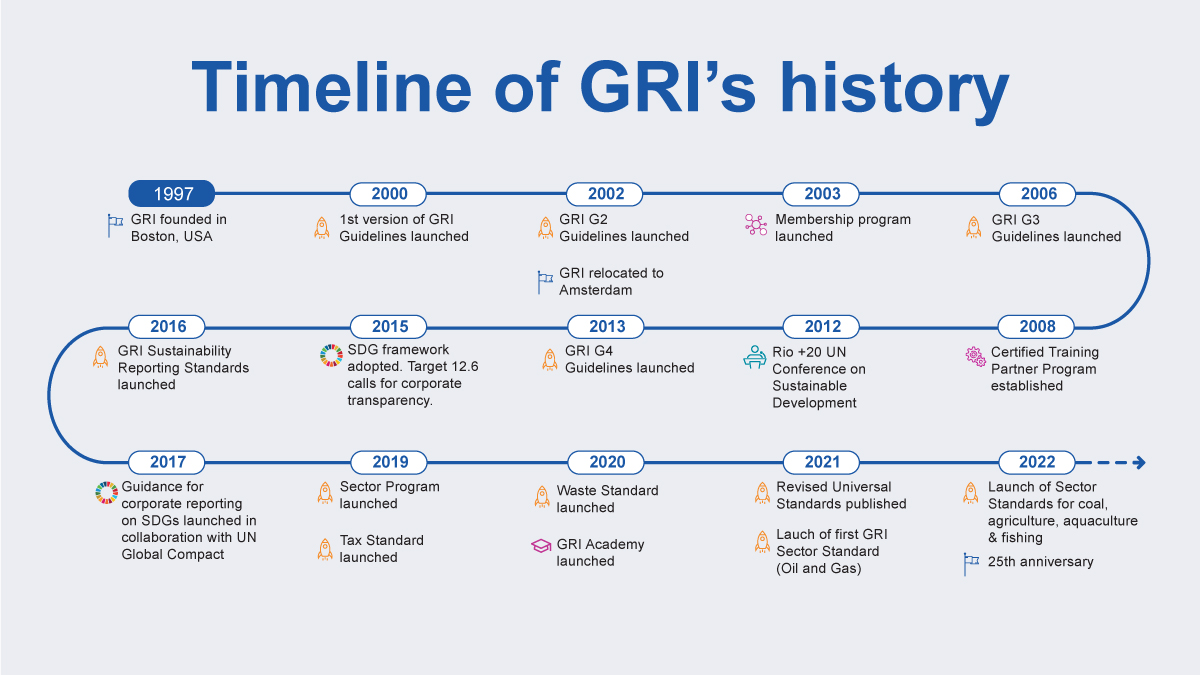GRI was founded in Boston (USA) in 1997 following on from the public outcry over the environmental damage of the Exxon Valdez oil spill, eight years previously. Our roots lie in the non-profit organizations CERES and the Tellus Institute, with involvement of the UN Environment Programme. The aim was to create the first accountability mechanism to ensure companies adhere to responsible environmental conduct principles, which was then broadened to include social, economic and governance issues.
The first version of what was then the GRI Guidelines (G1) published in 2000 – providing the first global framework for sustainability reporting. The following year, GRI was established as an independent, non-profit institution. In 2002, the GRI's Secretariat relocated to Amsterdam (The Netherlands), and the first update to the Guidelines (G2) launched. As demand for GRI reporting and uptake from organizations steadily grew, the Guidelines were expanded and improved, leading to G3 (2006) and G4 (2013).
With participation in sustainability reporting spreading around the world, GRI increased it's presence aroudn the world. This led to a regional network being established, with the current set up including offices in India (since 2010), South Africa (2013), Colombia (2014) and Singapore (2019). GRI global conferences were held (in Amsterdam) in 2006, 2008, 2010 and 2016 - with a focus on more regular regional or virtual events and summits since.
In 2016, GRI transitioned from providing guidelines to setting the first global standards for sustainability reporting – the GRI Standards. The Standards continue to be updated, including new Topic Standards on Tax (2019) and Waste (2020), and a major update to the three Universal Standards (2021). That year also saw the addition of Sector Standards, starting with Oil & Gas. To follow were Agriculture, Aquaculture & Fishing and Coal (2022), then Mining and a revised Biodiversity Topic Standard (2024).
